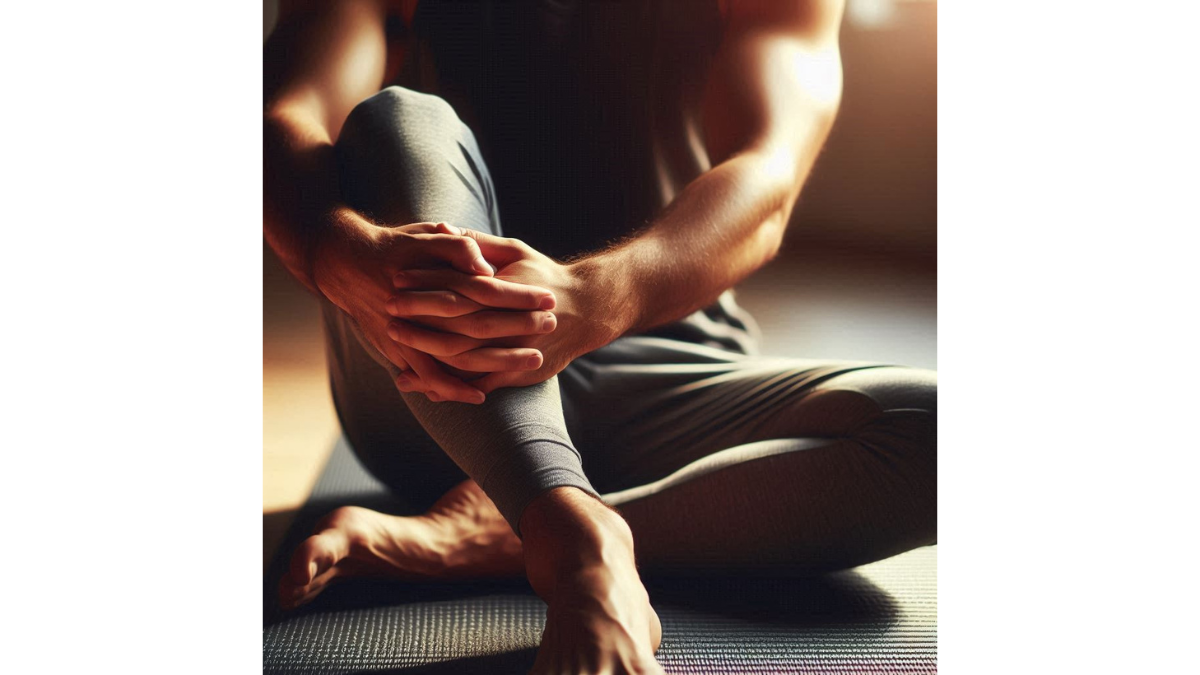Expert Advice: How to Release Muscle Tension

Expert Advice: How to Release Muscle Tension – Muscle tension is a common issue that affects many people, often without them even realizing it. It’s that tightness you feel after a long day at work or during a stressful week. If you’ve ever noticed your shoulders creeping up towards your ears or your back feeling stiff and achy, you’re not alone. Muscle tension arises from various factors, both physical and psychological. Physically, it can be triggered by poor posture, lack of movement, or even strenuous activity. On the psychological side, stress and anxiety commonly contribute to muscle tightness, often resulting in a cycle where the more stressed you feel, the tenser your muscles become. Imagine after an intense day, you return home only to have persistent aches in your neck and shoulders. This is muscle tension at play, creating not just physical discomfort but a ripple effect that impacts your overall well-being.
Importance of Well-Being
The connection between muscle tension and well-being cannot be overstated. When you’re dealing with physical discomfort, it can spill over into other areas of your life, affecting your mood, productivity, and even relationships. Understanding and managing muscle tension is crucial for restoring balance and promoting a healthier lifestyle. Here are a few reasons why well-being is essential:
- Enhanced Mood: Releasing muscle tension can significantly uplift your mood. You’ll likely find yourself feeling more relaxed and ready to tackle the day.
- Improved Focus: When your body isn’t battling discomfort, your mind can concentrate better on tasks rather than running through a mental checklist of aches and pains.
- Better Sleep: You may discover that relieving muscle tension makes it easier to fall asleep and stay asleep, offering you the restorative rest your body craves.
To put it simply, your well-being relies on your physical state. By addressing and managing muscle tension effectively, you open the door to a more fulfilled and productive life. In the upcoming sections, we’ll dive deeper into the causes of muscle tension, its effects, and expert tips to equip you with the tools to release muscle tension and restore your well-being.
Causes of Muscle Tension
Physical Factors
Understanding the physical factors behind muscle tension can provide significant insights into how to alleviate discomfort. Physical stressors are often unavoidable in our daily lives, but recognizing them is the first step in taking control. One major physical factor is poor posture. Think about how often you find yourself hunched over your computer or slouched on the couch. After hours of this position, it’s no wonder your muscles feel tight! Other physical contributors include:
- Sedentary Lifestyle: Prolonged periods of inactivity can lead to stiffness. If you work at a desk for most of the day, incorporating short breaks for movement can prevent muscle tightness.
- Overexertion: Whether you’re lifting heavy boxes or engaging in an intense workout without proper warm-ups, overworking your muscles can cause them to tense up as a protective mechanism.
- Repetitive Movements: Performing the same task over and over, like typing or even certain athletic movements, can lead to muscle strain.
For example, a friend of mine, who works in graphic design, struggled with severe neck pain due to hours spent in front of a screen without breaks. Once she made a conscious effort to adjust her workspace ergonomics and take frequent stretch breaks, her muscle tension remarkably diminished.
Psychological Factors
Just as crucial as physical contributors, psychological factors play a vital role in muscle tension. Stress, anxiety, and emotional strain manifest physically, often leading you to unconsciously hold tension in various muscle groups. Consider these psychological influences:
- Stress Response: When confronted with stress, your body activates its “fight or flight” response. While this can be beneficial in short bursts, chronic stress results in prolonged muscle tightness.
- Anxiety and Worry: Persistent anxiety often leaves you in a state of heightened alertness, where muscles remain contracted, creating an underlying discomfort that can be hard to shake.
- Emotional Reactions: It’s not uncommon for unresolved emotions, like anger or sadness, to translate into physical tension. You might feel your shoulders tighten when discussing that stressful situation.
To illustrate, think about a time when you experienced a significant life change, like moving or starting a new job. The tension in your body might have mirrored the challenges faced; your muscles bore the brunt of emotional turbulence. By addressing both physical and psychological factors, you can better manage muscle tension. In the next sections, we’ll explore how to identify the effects of muscle tension on the body to guide you towards effective relief strategies.
Effects of Muscle Tension on the Body
Physical Symptoms
As we delve deeper into the effects of muscle tension on the body, it becomes evident that the consequences can be both immediate and far-reaching. Physical symptoms often emerge as the most noticeable manifestations of this tension, impacting your daily life significantly. Some common physical symptoms include:
- Neck and Shoulder Pain: Perhaps the most reported complaint, chronic tension can lead to debilitating pain in the neck and shoulder area. You might feel a persistent ache after a long day at your desk, making it difficult to relax or even sleep.
- Headaches: Muscle tension can lead to tension headaches, characterized by a dull, aching sensation around your head and a sense of pressure behind your eyes. I once experienced debilitating headaches after a project deadline, only to discover that my tight back and neck muscles were the culprits.
- Back Pain: Tight muscles in the back can restrict movement and lead to discomfort, especially after prolonged sitting.
- Jaw or Facial Pain: If you grind your teeth during stressful times, you might experience jaw tension, leading to conditions like TMJ (Temporomandibular Joint Dysfunction), which can make chewing painful.
- Fatigue: Tension in your muscles can prevent them from relaxing properly, leading to a generalized feeling of fatigue and lack of energy.
Recognizing these symptoms is the first step toward addressing the tension and its physical repercussions.
Emotional Impact
While the physical symptoms of muscle tension are often more apparent, the emotional impact can be equally significant and debilitating. It’s fascinating how interconnected our bodies and minds are—what affects one often ripples into the other. Consider the following emotional effects:
- Increased Anxiety: When your body is tense, it can elevate feelings of anxiety, making it tough to cope with everyday stressors. You may find yourself more irritable or on edge, as muscle tension triggers a physiological stress response.
- Depression: Chronic physical discomfort can lead to feelings of helplessness and despair, fostering a cycle of emotional distress. Individuals often find themselves feeling down if they can’t engage in activities due to the pain caused by muscle tension.
- Reduced Motivation: When you’re physically uncomfortable, it is challenging to stay motivated. This can lead to a withdrawal from social activities, impacting relationships and overall life satisfaction.
- Cognitive Strain: Muscle tension can cloud your thinking; thus, you may struggle with concentration and decision-making. I went through a hard time when muscle tension caused a foggy mindset, making my work life suffer despite my best efforts.
Understanding both the physical and emotional consequences of muscle tension highlights the urgent need for effective strategies to counteract it. In the following sections, we will explore expert tips for relieving muscle tension, providing you with valuable tools to regain your well-being.
Expert Tips for Relieving Muscle Tension
Proper Stretching Techniques
Now that you’re aware of the effects muscle tension can have on your body and mind, let’s dive into some expert tips for relieving that tension. One of the most effective approaches is through proper stretching techniques. Stretching not only helps to alleviate tightness but also promotes blood flow and enhances flexibility. Here are a few key stretching techniques you can incorporate into your routine:
- Neck Stretch: Sit comfortably and slowly tilt your head towards one shoulder, holding for 15-30 seconds. You can deepen the stretch by using your hand to gently pull your head closer. Repeat on the other side.
- Shoulder Rolls: Stand or sit and roll your shoulders forward in a circular motion for 10 repetitions, then reverse the direction. This simple movement helps release built-up tension in the shoulders.
- Chest Opener: Stand up straight, clasp your hands behind your back, and gently pull your shoulders back and down. This will help counteract the effects of hunching and promote more profound breathing.
- Cat-Cow Stretch: Get on all fours and alternate between arching and rounding your back. This stretch is particularly beneficial for releasing tension in the back and neck.
- Hamstring Stretch: Sit on the floor with one leg extended. Reach towards your toes while keeping your back straight. Hold for 15-30 seconds on each side to relieve tension in the legs.
Incorporating these stretches into your daily routine, particularly during breaks or after long periods of sitting, can make a profound difference.
Techniques for Relaxation
In addition to stretching, embracing relaxation techniques is crucial for reducing muscle tension. These methods help calm the mind and body, thereby promoting relaxation and tension release. Here are several effective techniques you can try:
- Deep Breathing: Simple yet highly effective, focusing on deep, rhythmic breaths can significantly reduce stress. Inhale deeply through your nose for a count of four, hold for four, and then exhale through your mouth for six. Repeat this for several minutes to induce calmness.
- Progressive Muscle Relaxation (PMR): This technique involves tensing and then relaxing different muscle groups in a systematic manner. Start from your toes and work your way up, focusing on each area. This can help you become more aware of where you’re holding tension.
- Mindfulness Meditation: Spending a few minutes in mindfulness can help center your thoughts and reduce stress. Simply sit in a quiet space, close your eyes, and focus on your breath or a calming mantra to develop a sense of peace.
- Visualization: Imagine a tranquil scene, like a beach at sunset or a calm forest. Engaging all your senses to vividly picture this environment can help transport you to a state of relaxation.
By applying these stretching techniques and relaxation methods, you can more effectively manage and relieve muscle tension, paving the way for both physical and emotional well-being. As we continue, we’ll explore lifestyle changes that can further reduce muscle tension and enhance your overall health.
Lifestyle Changes to Reduce Muscle Tension
Exercise and Physical Activity
As we continue to explore ways to alleviate muscle tension, incorporating exercise and physical activity is one of the most beneficial lifestyle changes you can make. Regular movement helps reduce stress, enhances blood flow, and promotes overall muscle health. Here are some effective forms of exercise that can help reduce muscle tension:
- Cardiovascular Exercise: Activities like walking, jogging, or cycling increase your heart rate and release endorphins, which are natural stress relievers. Aim for at least 30 minutes of moderate cardio most days of the week.
- Strength Training: Strength exercises can help build overall muscle health and flexibility. Focus on exercises that target various muscle groups, such as squats, lunges, and push-ups.
- Yoga: Not only is yoga fantastic for stretching, but it also incorporates relaxation techniques that can help reduce tension. The combination of gentle movements, deep breathing, and mindfulness makes it a great choice for those dealing with stress.
- Dance or Group Classes: Engaging in fun activities like dance classes or group workouts can elevate your mood and help release pent-up tension through movement. Plus, it’s a fantastic way to socialize!
I remember joining a local dance class during a particularly hectic time, and it was refreshing to let loose, move my body, and laugh alongside others. The experience not only relieved my muscle tension but also uplifted my spirits.
Stress Management Techniques
Alongside physical activity, implementing stress management techniques can provide significant relief from muscle tension. Managing stress is crucial since it’s often a significant contributor to tight muscles. Here are some effective stress management techniques to consider:
- Time Management: Organizing your time and prioritizing tasks can help reduce feelings of being overwhelmed. Use tools like to-do lists or digital planners to keep track of your responsibilities.
- Establish Boundaries: Learn to say no when you feel stretched too thin. Setting boundaries can help you maintain a healthy balance between work and relaxation.
- Mindfulness Practices: Regularly practicing mindfulness activities, such as meditation or journaling, can help ground you and reduce stress. It allows you to observe your thoughts without judgment, helping to create a sense of calm.
- Connect with Nature: Spending time outdoors can greatly affect your mental state. Whether it’s a hike, a walk in the park, or simply enjoying a serene view, nature can rejuvenate your mind and body.
- Engage in Hobbies: Make time for activities that bring you joy, whether it be painting, gardening, or reading. Pursuing hobbies can engage your mind in a way that offsets stress.
By integrating these changes into your lifestyle—regular exercise and effective stress management—you empower yourself to combat muscle tension proactively. In the subsequent sections, we will delve into the role of nutrition in promoting muscle health and relaxation, enriching your journey toward well-being.
Nutrition for Muscle Health
Foods that Promote Muscle Relaxation
As we progress in our journey toward combating muscle tension, let’s turn our focus to the role of nutrition. What you eat plays a pivotal role in how your muscles feel and function. Certain foods can promote muscle relaxation, helping you feel more at ease both physically and mentally. Here are some muscle-relaxing foods you might consider incorporating into your diet:
- Leafy Greens: Foods such as spinach and kale are rich in magnesium, a mineral essential for muscle relaxation. Magnesium helps regulate muscle contractions, so adding a spinach salad or green smoothie to your meals can be a game-changer.
- Bananas: These fruits are packed with potassium, which helps prevent muscle cramps and supports muscle function. Try having a banana as a pre-workout snack or blended into your morning smoothie.
- Fatty Fish: Fish such as salmon and mackerel are high in omega-3 fatty acids, known for their anti-inflammatory properties. Regular consumption can not only help relax your muscles but also improve overall joint health.
- Nuts and Seeds: Almonds, pumpkin seeds, and sunflower seeds are great sources of magnesium and healthy fats. A handful can be a perfect snack for an afternoon pick-me-up.
- Herbal Teas: Chamomile and peppermint teas are great options known for their calming effects. Sipping on these during the evening can help relax both the body and mind before bedtime.
I’ve found that after a particularly stressful day, enjoying a warm cup of chamomile tea while reading can significantly lower my muscle tension and improve my mood.
Hydration and its Impact
Along with making healthier food choices, hydration is essential for maintaining muscle health. Dehydration can contribute to muscle cramps, fatigue, and even tension. Here’s why staying hydrated matters:
- Muscle Function: Water is crucial for transporting nutrients to muscles and removing waste products. When you’re dehydrated, your muscles may not function efficiently, leading to cramping or tightening.
- Joint Lubrication: Proper hydration helps maintain joint lubrication, which reduces friction and discomfort when moving.
- Performance: Well-hydrated muscles perform better, whether you’re exercising or simply going about your day. Dehydration can lead to fatigue, which often translates to tension and discomfort.
To ensure you stay adequately hydrated, consider these tips:
- Aim to drink at least eight 8-ounce glasses of water daily, adjusting according to activity level and climate.
- Carry a reusable water bottle with you to remind yourself to drink throughout the day.
- Include water-rich foods in your diet, such as cucumbers, oranges, and watermelon.
By focusing on the right nutrition and hydration, you’re investing in your muscle health and overall well-being. As you cultivate these habits, you’ll find yourself better equipped to manage and prevent muscle tension. Next, we will look into alternative therapies that can be effective in achieving muscle relaxation and reducing tension.
Alternative Therapies for Muscle Tension Relief
Massage Therapy
As we delve into alternative therapies for muscle tension relief, one of the most recognized methods is massage therapy. This ancient practice not only feels good but also offers a multitude of benefits that can significantly alleviate muscle tension. There are various styles of massage to consider, each contributing differently to muscle relaxation:
- Swedish Massage: This is great for general relaxation and involves long strokes and kneading. It can help improve circulation and ease tension throughout the entire body.
- Deep Tissue Massage: Focusing on deeper layers of muscle tissue, this type is especially beneficial for chronic pain and tight areas. My first experience with deep tissue massage completely transformed how I approached my workweek; the relief I felt in my back was astounding.
- Trigger Point Therapy: By focusing on specific tight areas, trigger point therapy can release knots that contribute to discomfort. They often provide immediate relief to tight muscles and help restore movement.
To get the most out of your massage, consider these tips:
- Communicate with Your Therapist: Don’t hesitate to inform your therapist about specific areas of tension or pain. They’re there to help you and can tailor the session to your needs.
- Stay Hydrated: Drinking water after a massage can help flush out toxins released during the treatment, enhancing recovery.
- Combine with Stretching: Following a massage session, gentle stretching can maintain the benefits and reinforce relaxation.
Acupuncture and Acupressure
Another alternative therapy to explore is acupuncture and its close cousin, acupressure. Both techniques have their roots in Traditional Chinese Medicine and have been used for centuries to address various ailments, including muscle tension.
- Acupuncture involves inserting thin needles into specific points on the body to promote energy flow and healing. Many people report significant reductions in muscle tension after acupuncture sessions.
- Acupressure, on the other hand, applies gentle pressure to the same energy points without needles. This technique is useful for self-treatment; for instance, pressing on the space between your thumb and index finger can help relieve shoulder tension.
Research shows that these methods can effectively reduce muscle tightness while promoting relaxation. Here are a few tips to consider if you’re interested in trying these therapies:
- Find a Qualified Practitioner: Ensure your acupuncturist or acupressurist is licensed and has a good reputation to maximize the benefits.
- Consider Regular Sessions: For chronic muscle tension, regular treatments may provide the most relief, helping to manage tension over time effectively.
By exploring these alternative therapies—massage and acupuncture—you empower yourself with additional tools to release muscle tension and restore balance to your body. Next, we will discuss the essential role of sleep in muscle recovery, emphasizing its importance in your overall well-being.
Importance of Sleep in Muscle Recovery
Sleep Hygiene Tips
As we wrap up our exploration of muscle tension relief, it’s crucial to highlight the importance of sleep in muscle recovery. Many people underestimate the role that quality sleep plays in maintaining muscle health and overall well-being. Sleep is when your body performs critical repair processes, including healing muscle tissues and regulating hormones. To make the most of your nightly rest, here are some essential sleep hygiene tips:
- Keep a Consistent Sleep Schedule: Try going to bed and waking up at the same time every day, even on weekends. This consistency helps regulate your body’s internal clock and can improve the quality of your sleep.
- Create a Sleep-Friendly Environment: Your bedroom should be conducive to sleep. Aim for a cool, dark, and quiet environment. Consider investing in blackout curtains or a white noise machine if outside light or noise interrupts your sleep.
- Limit Screen Time: The blue light emitted by phones, tablets, and computers can interfere with your sleep cycle. Try to avoid screens at least an hour before bed, and consider using apps or settings that reduce blue light exposure in the evening.
- Watch Your Diet: Be mindful of eating heavy meals close to bedtime. While a light snack may help, large meals can cause discomfort and disrupt your sleep.
Implementing these tips can create a more restful sleep environment, where your body can recharge and recover effectively.
Creating a Relaxing Bedtime Routine
In addition to good sleep hygiene, establishing a relaxing bedtime routine is essential for winding down. Taking the time to engage in calming activities signals to your body that it’s time to transition from a busy day to a restful night. Here are some ideas to create your ideal bedtime routine:
- Wind Down with Reading or Meditation: Consider reading a book or engaging in mindfulness meditation as your final activity of the day. This can help shift your focus away from stressors and promote relaxation.
- Gentle Stretching or Yoga: Performing a few gentle stretches or yoga poses can relieve muscle tension accumulated throughout the day. Try focusing on areas that feel tight, allowing your body to unwind further.
- Warm Bath or Shower: Taking a warm bath or shower can ease muscle tension and prepare your body for rest. Incorporating calming essential oils, like lavender, can enhance relaxation.
- Journaling: Spend a few minutes reflecting on your day or jotting down thoughts and feelings. This can help clear your mind, reducing anxiety and creating a peaceful mindset before sleep.
In my experience, dedicating just 30 minutes to a calming routine has drastically improved my sleep quality. Waking up refreshed allows me to tackle my day with significantly less muscle tension. By recognizing the importance of sleep and integrating these tips and routines into your life, you lay the groundwork for effective muscle recovery and overall well-being. Prioritizing restful sleep is the final piece of the puzzle in your journey to relieve muscle tension and restore balance to your life.
You might also find this article helpful Weight Management: Tips for a Healthy Weight






One Comment